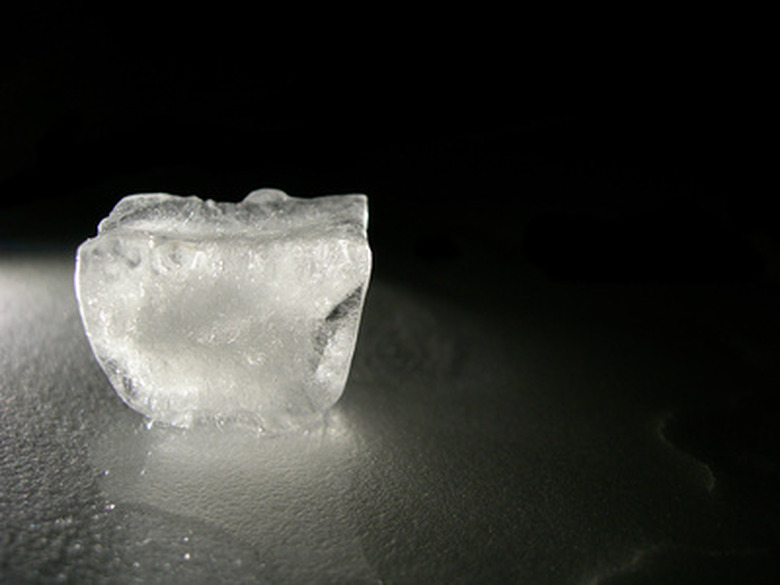Science Projects To Learn If An Ice Cube Melts Faster In Air Or Water
Understanding the states of matter is one of the fundamentals skills required to advance a student's comprehension of the material sciences. For this reason, it is valuable to direct students to understand the way phase change takes place in matter. Science projects with melting ice are a useful first-tier experiment for the novice student. Examining how air and water affect how ice melts is a useful basis for such experimentation.
Control Experiments
Control Experiments
These kind of projects are designed with the "all things being equal" principle, and with the idea of creating a baseline for further exploration. One of the best control projects for determining melting speeds in air and water involves placing a single ice cube onto a wooden coaster and another into a glass of water that has been allowed to equalize to room temperature. Both cubes should be stored in similar areas with no ambient exposure to air currents, heat sources or bright lights and monitored until the ice is gone.
Air Variable Projects
Air Variable Projects
These projects rely on a clear control experiment as a baseline to see how changes in the air affect the outcome of the melting. The experiment should maintain the same initial parameters as the control experiment, with modifications to the air component. Students should use fans to blow heated or non-heated air over both cubes (at various speed settings), and then note any changes to the total melting time for the ice cubes.
Water Variable Projects
Water Variable Projects
These projects, like the air variable projects, require a clear baseline control value. However, in these experiments, the only variables are in the water medium used. Varying amounts of salt, vinegar and other substances are added to the water to see if the dissolved materials affect the melting speed of the ice. You can also vary the starting temperature of the water to see how this changes the results.
Ice Variable Experiments
Ice Variable Experiments
In these experiments, you will use the same baseline values for each element, except for varying the the way the ice is used. In one variant of this project, you can vary the number of cubes used and see how this alters the melting time. In another, you can use larger ice cubes, or even ice cubes of varying shapes. In yet another, you can arrange the cubes into differing shapes to see how they affect melting speeds.
Cite This Article
MLA
Klaus, Andy. "Science Projects To Learn If An Ice Cube Melts Faster In Air Or Water" sciencing.com, https://www.sciencing.com/science-melts-faster-air-water-7930620/. 24 April 2017.
APA
Klaus, Andy. (2017, April 24). Science Projects To Learn If An Ice Cube Melts Faster In Air Or Water. sciencing.com. Retrieved from https://www.sciencing.com/science-melts-faster-air-water-7930620/
Chicago
Klaus, Andy. Science Projects To Learn If An Ice Cube Melts Faster In Air Or Water last modified August 30, 2022. https://www.sciencing.com/science-melts-faster-air-water-7930620/
